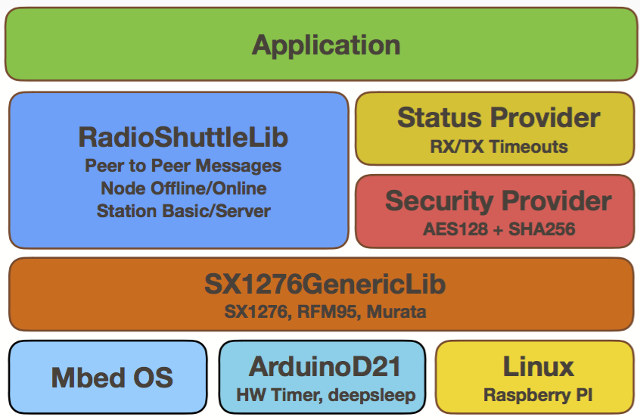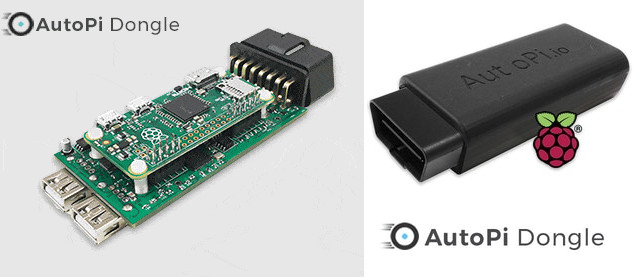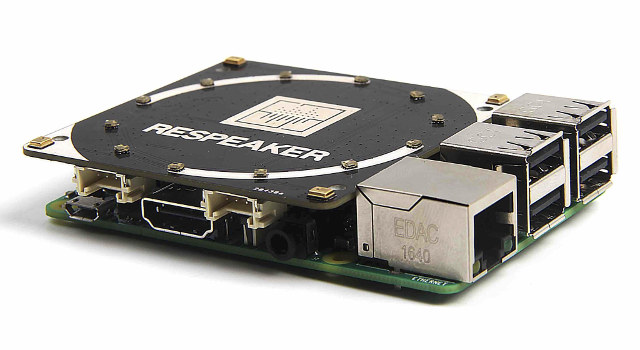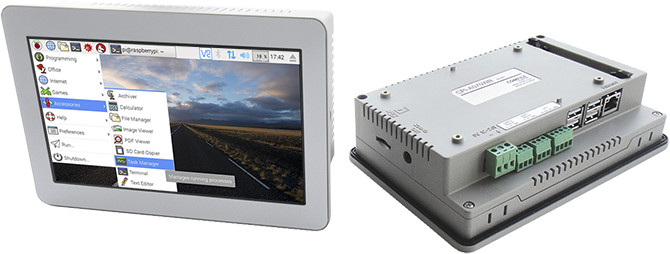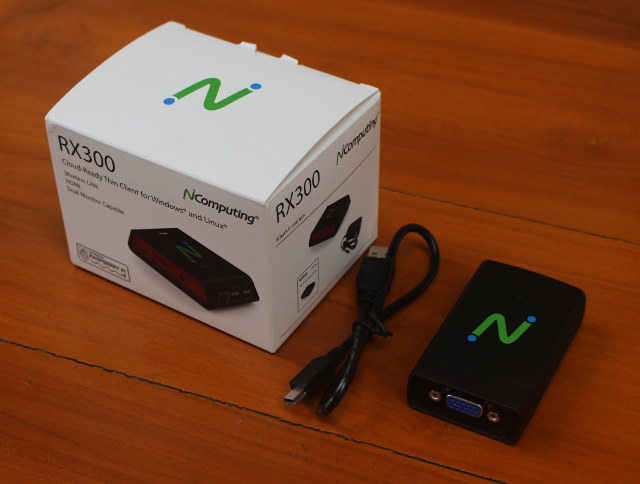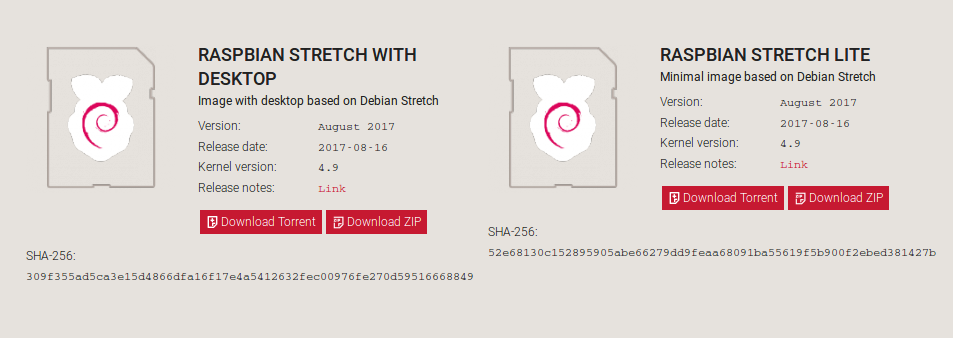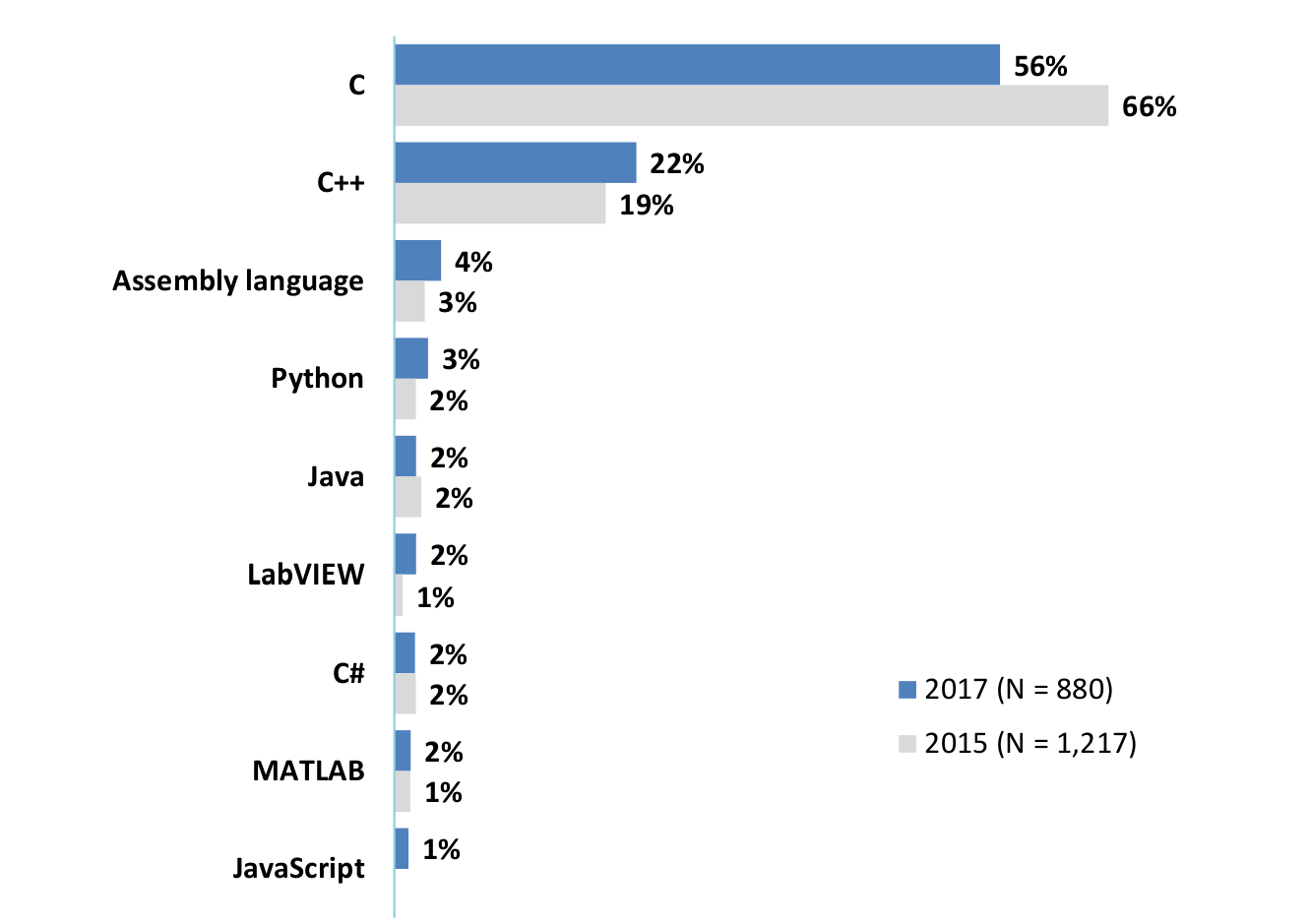LoRaWAN protocol is one of the most popular LPWAN standards used for the Internet of Things today, but some people found it “lacked efficiency, did not support direct node-to-node communication, and was too costly and far too complicated for many applications”, so they developed their own LoRa wireless protocol software called RadioShuttle, which they claim is “capable of efficiently sending messages in a fast and secure way between simple LoRa modules”. Some of the key features of the protocol include: Support for secure or insecure (less time/energy) message transmission, multiple messages transmission in parallel Unique 32-bit device ID (device number) per LoRa member, unique 16-bit app ID (program number for the communication) Security – Login with SHA-256 encrypt password; AES-128 message encryption Air Traffic Control – Nodes only send if no LoRa signal is active on that channel. Optimized protocol – Message delivery within 110 ms (SF7, 125 kHz, free […]
AutoPi is a 4G & GPS OBD-II Dongle Based on Raspberry Pi Zero W Board (Crowdfunding)
We’ve previously covered Macchina M2 OBD-II dongle based on an Arduino compatible MCU, and with 4G LTE support for the maker market, and iWave Systems OBD-II dongle with 4G LTE and LTE running Linux on NXP i.MX6 for the B2B market, but so far I had not seen an hackable OBD-II dongle running Linux for the maker market. AutoPi dongle fills that void as it is based on Raspberry Pi Zero W board, runs Raspbian with Autopi software (AutoPi Core), supports 4G LTE, GPS, etc,.. and connects to your car’s OBD-II socket. AutoPi dongle specifications: SoC – Broadcom BCM2835 ARN11 Core processor @ up to 1 GHz System Memory – 512MB LPDDR2 SRAM Storage – 8GB micro SD card Cellular Connectivity 4G Cat 1 modem with 3G/EDGE fallback working worldwide (but region locked) 4G bands – Region specific 3G fallback (WCDMA) – B1, B2, B4, B5, B8 EDGE fallback – […]
Google Assistant News – AIY Voice Kit For Sale, Offline Support, 3rd Party Smart Speakers Announced
There’s been a lot of development related to Google Assistant in the last few days. First, Google provided an update for AIY Projects, with their AIY Projects Voice Kit now available for pre-order on Micro Center for $35 including a Raspberry Pi 3 board, making the kit virtually free, although you may also purchase it. Note that Micro Center blocks traffic originating from some countries, so I had to use Zend2 to access the site. [Update 10/09/2017: You can also get it from Seeed Studio for worldwide shipping] Google also announced the Speech Commands Dataset with 65,000 one-second long utterances of 30 short words, which they are in the process of integrating with the next release of the Voice Kit, and will allow the devices to respond to voice commands without the need for an Internet connection. So if you lose your Internet connection, or want to isolate your Voice […]
ReSpeaker 4-Mic Array is $25 Quad Microphone Add-on Board for Raspberry Pi
Last year, Seeed Studio launched ReSpeaker WiFi Audio / IoT board based on Mediatek MT7688, as well as an optional microphone array board with 7 microphones and 12 LEDs. Later on, they introduced a $10 2-mic array board for Raspberry Pi Zero (W), and today the company has started to take orders for ReSpeaker 4-Mic Array for Raspberry Pi board for $24.50 plus shipping. Respeaker 4-Mic Array board specifications: Audio X-Powers AC108 quad-channel ADC with I2S/TDM output transition 4 Microphones Expansion 2x Grove interfaces (1x I2C, 1x GPIO port using pins 12 & 13) 40-pin Raspberry Pi compatible header Misc – 12 LEDs (APA102) connected over SPI, GPIO5 enables power Dimensions – 65mm x 65mm x 9mm Weight – ~20 grams The board will give Raspberry Pi board the ability to do Voice Activity Detection (VAD) aka “hot word” detection, estimate Direction of Arrival (DoA) and show the direction via the LED ring, just like Amazon Echo or Google Home. I’m using an Orange Pi Zero board with a single microphone with Google Assistant and while it works fine most of the […]
ComfilePi Industrial Touch Panel PCs are Based on Raspberry Pi CM3 Module
ComfilePi CPi-A070WR & CPi-A102WR are industrial IP65 panel PCs powered by Raspberry Pi CM3 compute module, with respectively 7″ and 10.2″ resistive touchscreen displays, and that run modified version of Raspbian OS. ComfilePi CPi touch panel computers specifications: SoC – Broadcom BMC2837 quad core Cortex A53 processor @ up to 1.2GHz with Broadcom VideoCore IV GPU System Memory – 1 GB Storage – 1x micro SD Slot Display 7“ 800×480 Touchscreen Pressure-sensitive (Resistive Film Type) LCD display OR 10.2” 800×480 Touchscreen Pressure-sensitive (Resistive Film Type) LCD display Audio – 3.5mm audio out port I/Os 40-pin header socket based on Raspberry Pi 40-pin header pinout with 22x GPIO with ESD protection circuit 2x RS-232 terminal blocks 1x I2C terminal block USB – 3x USB 2.0 ports Connectivity – 10/100M Ethernet, optional WiFi via USB dongle Misc – 1x Piezzo buzzer Power Supply – 12~24V DC via 3-pin terminal block Dimensions (housing […]
NComputing RX300 Thin Client Review – Part 1: Unboxing and Teardown
NComputing RX300 is a thin client based on Raspberry Pi 3 board that will allow to remotely run Windows and Linux operating systems from a much more powerful server, and Raspberry Pi 3 mostly handling the display, and connection to hardware like USB keyboard and mouse. The company has me sent a review sample for evaluation, and I’ll start by checking out what I received, and the hardware design of the device. NComputing RX300 Thin Client Unboxing I was asked whether I could test dual display, and then I had to choose between a VGA adapter or a DVI adapter. I selected the former, and I received both RX300 thin client, and a USB to VGA secondary adapter with its USB cable. We’ll find the thin client, a 5.1V/2.5A power adapter with a US plug adapter, and a multi-language quick installation guide in the package. The enclosure is really cute, and […]
Raspbian for Raspberry Pi Boards Gets Upgraded to Debian Stretch
While Raspberry Pi boards support many different operating systems, Raspbian is by far the most popular option, and in the last two years the distribution was based on Jessie (Debian 8), the Raspberry Pi foundation has just announced it was now replaced by an update to Stretch (Debian 9). The Jessie version is completely gone from Raspbian Download page, and you’ll only be offered to download “Raspbian Stretch with Desktop” or “Raspbian Stretch Lite”. So what has changed compared to Jessie? Debian 9 changelog will list the main differences compared to Debian 8, but some modifications have also been made in Raspbian itself: Version 3.0.1 of Sonic Pi “Live Coding Music Synth” app – See changelog Chrome 60 stable with improved memory usage and more efficient code Bluetooth audio is supported by the bluez-alsa package by default instead of PulseAudio Better handling of “non-pi users”, as previously many applications assumed […]
Aspencore 2017 Embedded Markets Study – Programming Languages, Operating Systems, MCU Vendors, and More
Aspencore media group asked readers of their EE Times and Embedded.com websites to fill out an online survey about their embedded system projects. They got 1,234 respondents mostly from North America (56.3%), followed by Europe (25.2%), and Asia (10.6%). This resulted in a 102-page market study which you can download here. I’ve extracted a few slides to have a look at some of the trends. C language is still the most used language in embedded systems, but other languages like C++, Python and even assembly language are gaining traction. Operating system is more spread with Linux being the most used via Embedded Linux distributions, Debian, and Ubuntu. FreeRTOS comes in second place, while Android registers fourth with 13%. Git has finally supplanted Subversion in 2017, with all other version control software losing ground. Switching to some hardware slides, 44% used a development board to start their embedded design with ST […]


